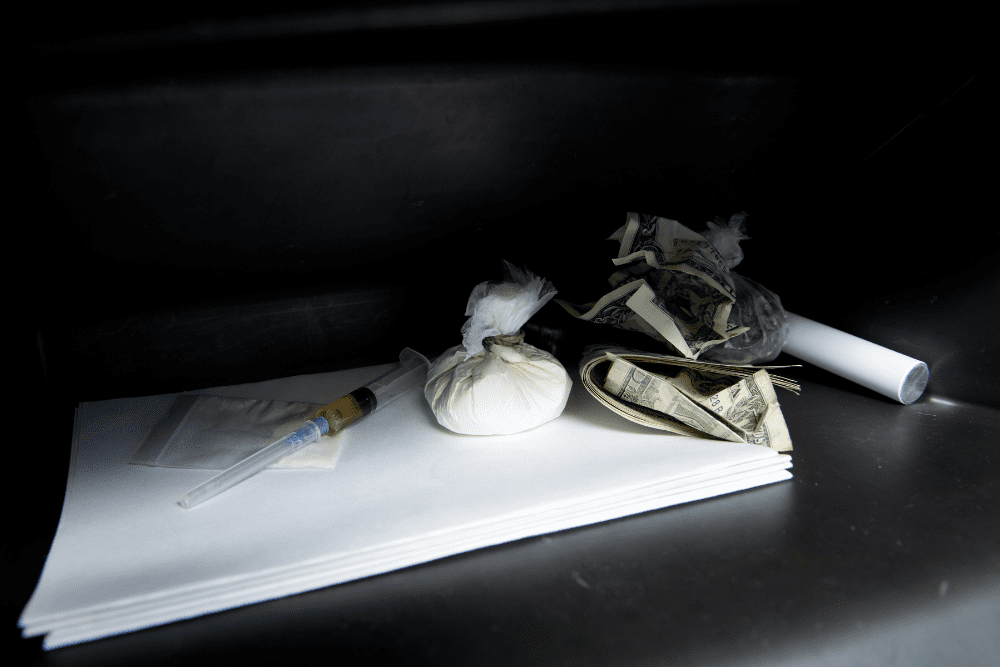- Home
- THE FIRM+
- Criminal Defense+
- CASE RESULTS
- AREAS WE SERVE+
- FAQ’s
- Blog
- Contact
AZHARI LLC BLOG

Posted By: Sami Azhari
Category:
Getting stopped for a suspected DUI is no fun, but neither are the consequences if the police find more than they bargained for in a stop.
An Oak Park driver discovered just how much things can go awry. They were pulled over for driving under the influence and ultimately arrested for it – plus they were hit with charges of drug possession. It seems police saw the drugs out in the open and charged an additional count.
The truth is, the police can pull you over for something minor like speeding, but if they see illegal drugs in your car, you may be charged with drug possession, too. This makes your case far more complicated, as drug possession laws in Illinois are significant. Here’s what you need to know about these laws and the issues bound up with them.
The Different Classes of Controlled Substances in Illinois
When you are arrested for possession of a controlled substance in Illinois, your charges fall under a certain schedule of drug There are five drug schedules, which include:
Schedule I Drugs
These drugs have the highest risk of abuse and no reported medical use. They include substances like opiates and hallucinogens.
Schedule II Drugs
Codeine, methamphetamines, and oxycodone are included in this drug schedule, which classifies drugs with some accepted medical use but a very high risk for abuse.
Schedule III Drugs
These include ketamine and buprenorphine. Some steroids form part of this schedule as well.
Schedule IV Drugs
These drugs carry an accepted medical use with an inclination toward abuse. Tramadol, diazepam, and alprazolam are examples.
Schedule V Drugs
These are generally medical drugs that contain small amounts of narcotics.
Possession in Illinois
However the type of drug found in your possession is classified, you will likely be charged with a felony.
Possession of Cocaine, Morphine, or Heroin
The amount of the drug you possess informs your penalty. Possession amounts are broken into the following quantities:
- 15 grams or less
- Class 4 felony
- Up to three years in prison
- Between 15 and 100 grams
- Class 1 felony
- Up to 15 years in prison
- Between 100 and 400 grams
- Class 1 felony
- Up to 30 years in prison
- Between 400 and 900 grams
- Class 1 felony
- Up to 40 years in prison
- Over 900 grams
- Class 1 felony
- Up to 50 years in a correctional facility
If the crime involves LSD or another hallucinogenic substance, i.e. ecstasy, the penalties are defined similarly to heroin, cocaine, and methamphetamines. Fines can also be assessed based on the street value of the drug.
Possession of Amphetamine, Peyote, and Barbituric Acid
If you are found in possession of 200 or more grams of amphetamine, peyote, or barbituric acid, you can face a maximum of 15 years in prison and $200,000 fines.
PCP, Ketamine, Pentazocine, and Methaqualone
For 30 grams or more of these substances, you may receive 15 years in prison and pay fines as high as $25,000.
About the Author
Sami Azhari has been working as a lawyer since 2007, after receiving his Juris Doctor from the Michigan State University College of Law. He has handled numerous state and federal cases, and is known throughout the Chicago and Rolling Meadows area for providing his clients with high-quality, skilled representation. He has been recognized by Avvo (2013 and 2018), SuperLawyers (2015-2020), The National Trial Lawyers, and other notable organizations, and has spoken at a number of legal conferences.


























































